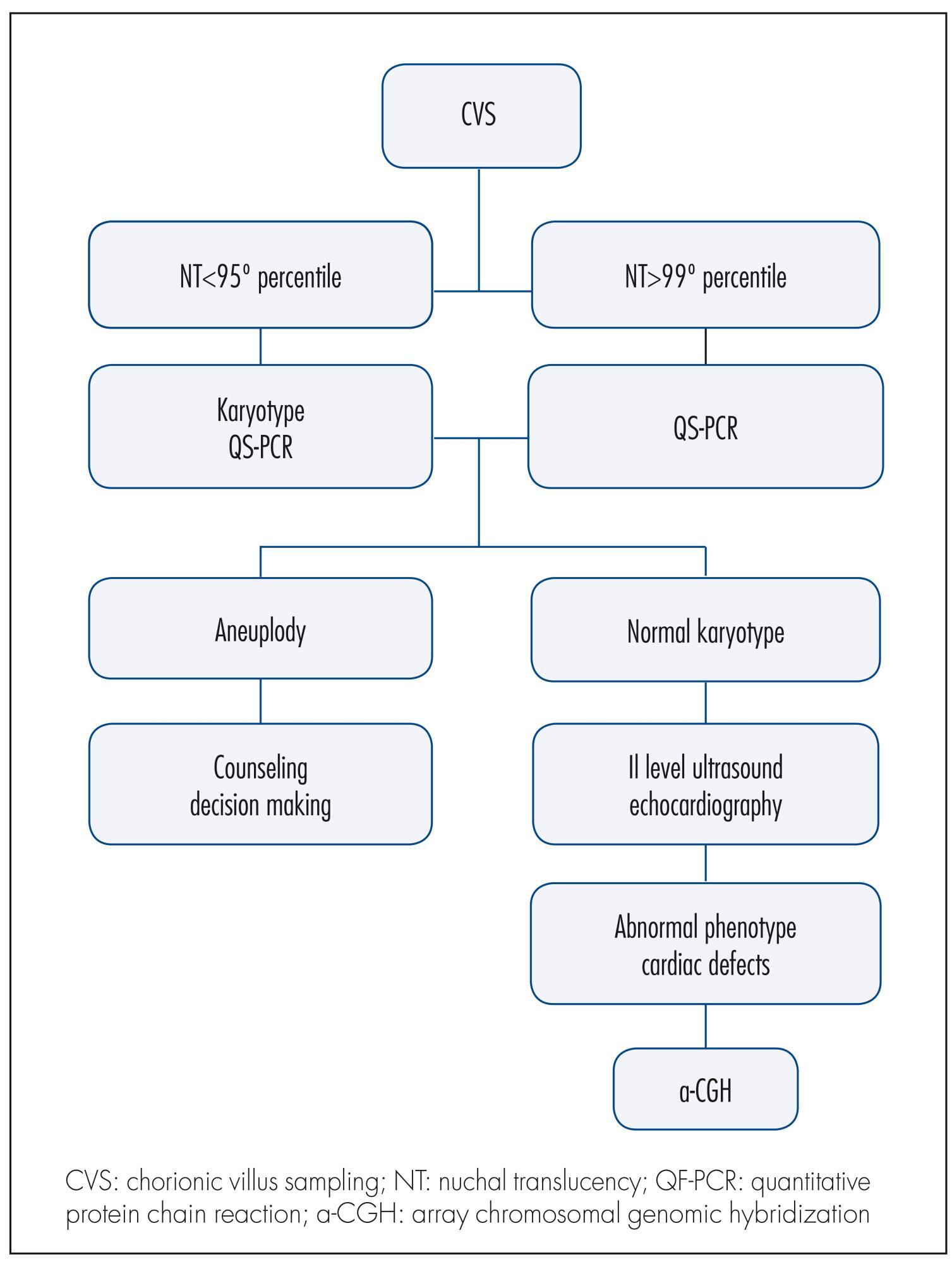Revista Brasileira de Ginecologia e Obstetrícia. 2014;36(5):189-191

There is convincing evidence suggesting a potential benefit of chromosomal microarray analysis for fetal abnormalities beyond conventional fetal karyotyping – . Microarray chromosomal genomic hybridization (a-CGH) may provide submicroscopic rearrangements especially duplicated or deleted portion of the DNA also known as copy number variants (CNVs). A limitation of chromosomal microarray analysis is the potential to identify variants of unknown clinical significance (VOUS). This occurred in 3.4% of cases in the NICHD trial. Such results were classified as “likely benign” in 1.8% of cases and “likely pathogenic” in 1.6%. The result may be uncertain because the CNVs may be rare, novel or characterized by variable penetrance. Furthermore, in such cases, a parental search is mandatory to detect a carrier state or a de novo mutation and to calculate recurrent risk in a genetic counseling.
Is genetic counseling advice before testing with a-CGH? Should an informed consent be obtained?
[…]
Search
Search in:


Comments